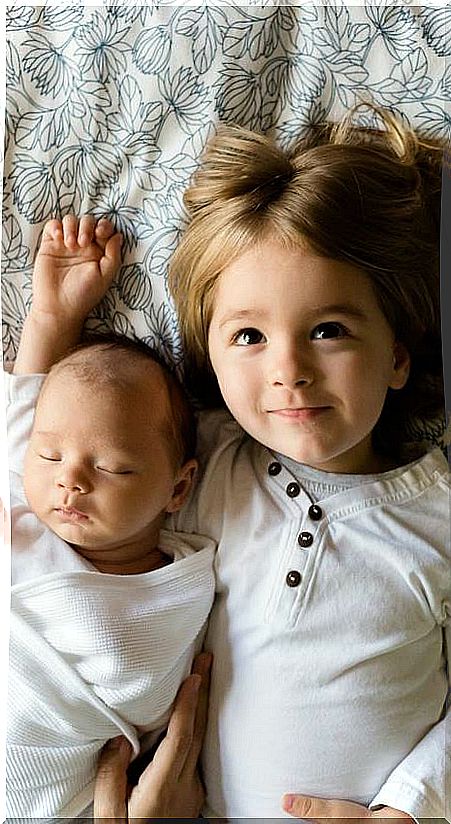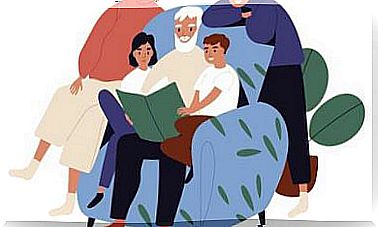7 Tips To Ensure The Happiness Of Your Children
To grow up happy and feel safe, babies need to perceive our presence. Unconditional love is the greatest legacy we can offer you.

The type of care that we provide to our children in their first months and years of life –including the period of pregnancy– will determine the quality of their emotional health throughout, not only their childhood, but also their adulthood.
7 tips for your children to grow up happy
All parents love our children and wish the best for them, not only in their childhood, but also in their adulthood.
However, as I see every day in my practice, reality is far from this legitimate desire and many are the people who, due to poor accompaniment in the first years of their life, reach adults burdened with serious emotional deficiencies that affect them. they cause a perpetual feeling of unhappiness.
That is why I propose seven keys to make it easier for your children to feel happy and safe.
1. Love without conditions
It is the fundamental pillar of adult happiness. If children feel unconditionally loved by their parents, they will grow up feeling confident and their emotional life will be much more balanced.
2. Security and protection
During the 9 months of pregnancy, babies feel fully protected in their uterine life. At birth, as mammals that they are, they need to feel that same sense of protection thanks to body heat, skin-to-skin contact, co-sleeping, perceiving familiar smells and feeling cared for.
3. Respect and understanding
To grow up healthy and happy, babies need to feel respected : empathy, understanding, words free of judgments, labels and never use manipulation, blackmail, violence or coercive systems of rewards and punishments.
4. Mindfulness
You are their best motivation.
They don’t need substitute toys or all those early stimulation programs. Contact, playing, tickling, massage, loving words, songs and stories are a source of health for our babies.
5. Trust them
If we trust them and their judgment when they are young, we will not undermine their self-esteem and they will trust themselves when they are older. But if we ignore them and do not take their emotions into account, they will be adults unable to value themselves.
6. Follow their rhythms
To be born when their time has come, to eat when they are hungry, to be cared for when they ask for it, to take the amount of food they want, to leave their diapers when they are ready, etc. These are all small decisions that your baby makes naturally. You should not be forced to deviate from that biological programming.
7. Not to be compared
No two children are the same. Each one has its own rhythm. Comparisons are always harmful. Remember that your child is unique and wonderful.
Arturo and Andrés: two cases of unhappy growth
A boy, Arturo, who came to consult a few years ago, summed up his situation with this eloquent and lucid phrase :
“How can I have confidence in myself, if no one has ever trusted me?”
I also remember the case of Andrés, a quite elderly man who, having ruled out a physical cause, came to see me because for years he had been accompanied by a perennial sensation of cold that even in summer forced him to sleep with more than seven blankets to be able to “feel warm ”.
Both were raised by dictatorial parents, convinced of the efficacy of punishment, shouting and hitting to educate their children.
Both suffered the rigors of emotional distance, indifference, grief, the feeling of abandonment resulting from “he needs to cry to develop his lungs”, “do not hold him in your arms he is going to get used to it” or the famous ” pay attention, he is challenging you ”.
In their adult years, they both agreed that neither of them felt entitled to be loved.
They also agreed to describe their lives as deeply unhappy. Neither Andrés nor Arturo felt loved or worthy of being loved in their childhood. Authoritarianism and emotional detachment caused them great damage and they had to do a lot of therapeutic work to overcome it.
Babies don’t ask for much to be happy
Babies require a constant, loving, protective and empathetic physical and emotional presence.
If a baby cries, he does not ask for so much, only the comfort provided by the warmth of beloved arms, pampering, tenderness, company, security.
If you are sleepy or hungry, you do not need tables or rules, you simply need to eat and sleep feeling protected, noticing that you grow and develop in a loving environment.
If you feel anguish, a sense of danger or infinite joy, our reassuring gaze, our loving words, our presence will suffice to accompany the intensity of your emotions …
If you want to explore the world, let us stop reproaches, orders, comparisons, fears or criticism and play with them, let us give them our hands, our words free of judgment, our love and our full trust.
They will also feel safe, as they grow, if we do not force them to achieve milestones for which they are not prepared, such as ditching the diaper, starting to walk early, going to sleep alone in a room of their own or jumping for a slide despite feeling fear.
When a child grows up noticing the confidence of his parents, he feels confident and develops a lifelong high self-esteem.
In reality, babies do not ask for much to be happy: to feel accompanied, loved, respected, cared for, that they listen to them, take care of them … And that they look at them, listen to them, pamper them and play with them.
But for many people it is a great burden to offer their children their love free of conditions and conditioning, due, not only to the burden of their own childhoods, but also to a capitalist production system that marks us the obligation to distance ourselves from our babies, from their first weeks of life, to be able to subsist financially.









